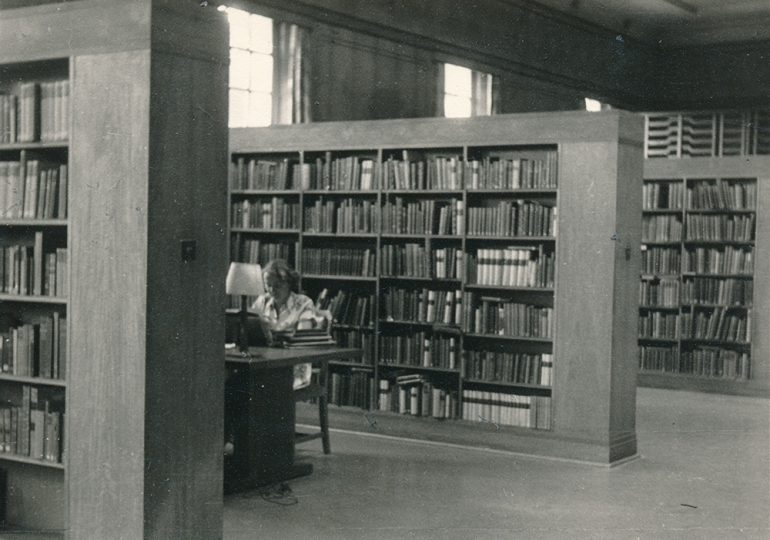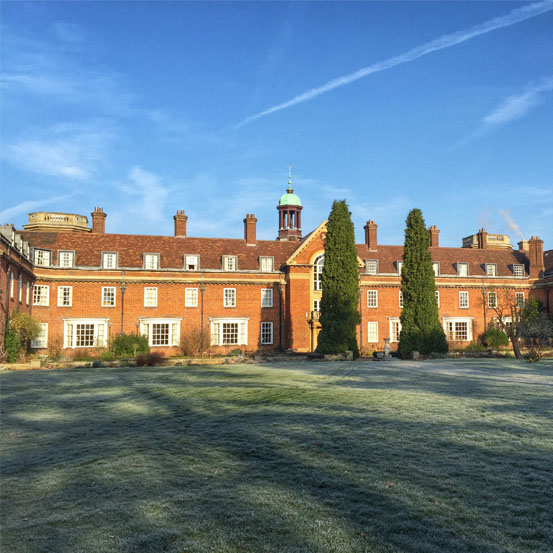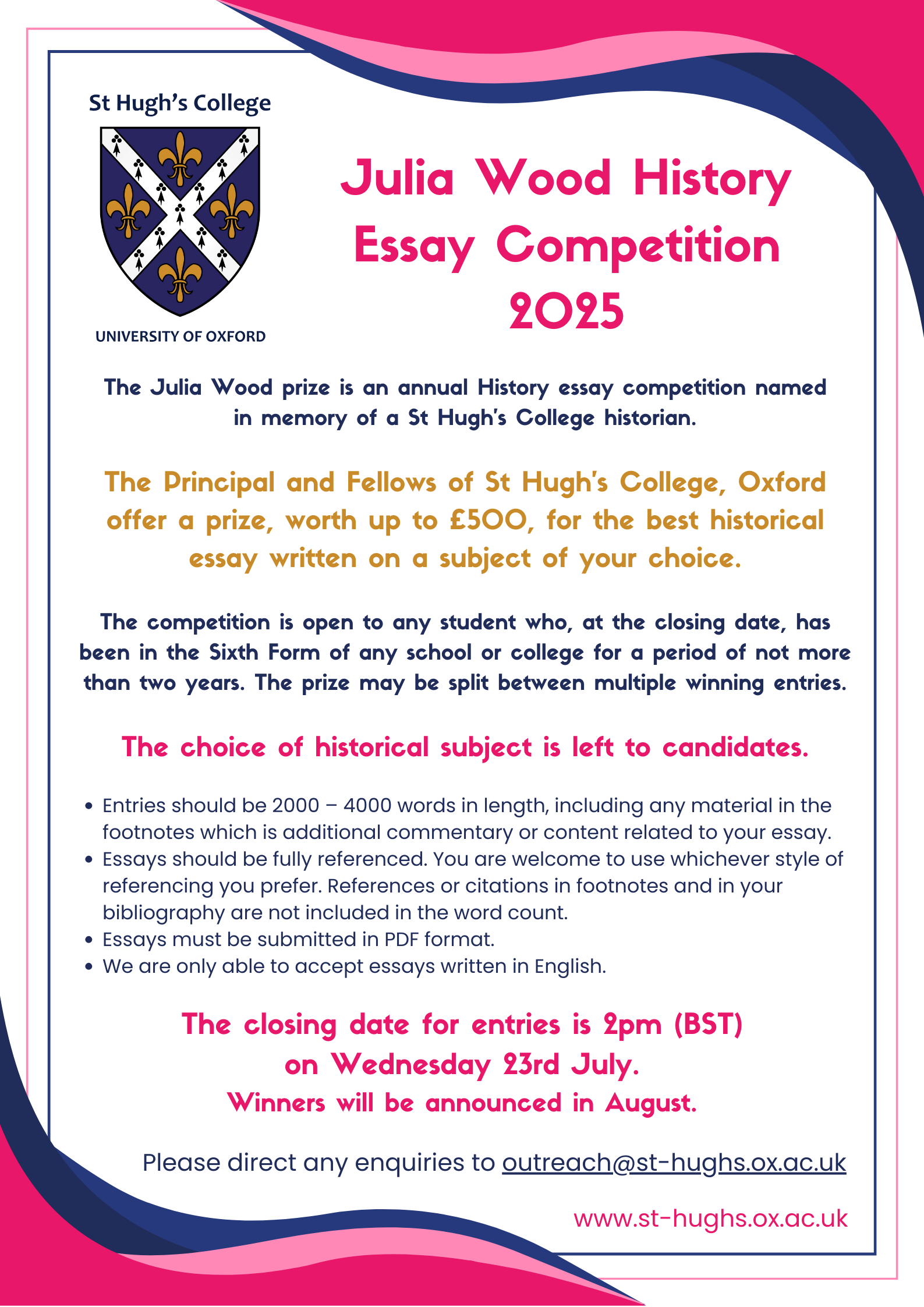The Julia Wood Competition 2025 is now open for entries!
How to enter
Entering the competition requires you to complete two separate steps, as described below. These steps should be completed in immediate succession. Please DO NOT complete Step 1 until you are also ready to complete Step 2. Registration forms for which the corresponding essay is not uploaded within 24 hours will be deleted.
Step 1
Fill in this registration form. You will be asked to enter your personal and contact details and the name of your essay.
Step 2
After completing the form in Step 1, you will receive an automated email containing the link to the submission portal, and full instructions on how to complete your submission. Please make sure that you read and follow these instructions carefully to ensure that your submission can be processed successfully.
Upon completing your submission, you will receive another automated email confirming that we have received your entry.
The deadline for completing your submission is 2pm (BST) on Wednesday 23rd July 2025. Entries received after this point will not be considered.
You are strongly encouraged to complete your submission well in advance of this deadline, to ensure that you have time to request assistance in the event of any technical issues. We may not be able to respond to individual queries received too close to the deadline.
If you have any questions about entering the competition, please check the FAQs before contacting us over email. If your question is not answered by the FAQs, or if you experience any issues with completing your submission, please get in touch with us at outreach@st-hughs.ox.ac.uk.
2024 Julia Wood Prize Winners
Last year, the number of entries to the Julia Wood Prize was 402. The prizes were awarded as follows:
Winners
Anna Batstone – Magdalen College School, Oxford (Year 12)
Treasure Trove or Fool’s Gold: To What Extent Can Literature Be Used as a Historical Source?
Alexandra Kochman – Wycombe Abbey, High Wycombe (Year 12)
The Odyssey: How did Polish refugees keep the idea of Poland alive during the Second World War?
Thomas Rowlands – St Leonard’s School, St Andrews (Year 12)
Runners Up
Dermot Christmas – St Paul’s School, London (Year 12)
The Pagan Period in Burma: to what extent did it influence Burmese resistance to the British Empire?
Mary-Ellen Dyson – St Michael’s Catholic Grammar School, London (Year 12)
To what extent was Henrietta Maria typical of a medieval woman?
Who was Julia Wood?
Julia Wood was an alumna of St Hugh’s College. She was born on 19th December 1938 and studied History; she was an Exhibitioner at the College between 1957 and 1960. Tragically, she died in an accident whilst in Australia in 1970. The fund for the Julia Wood Prize was established by the parents and friends of Julia Wood in May 1971.

The College Library in the mid twentieth century
St Hugh’s College
Founded in 1886, St Hugh’s is now one of the largest colleges in Oxford. The College was established to offer an Oxford education to women, and it retains a strong sense of its radical tradition and of the importance of opening Oxford up to all who would do well here. St Hugh’s now accepts men and women, and welcomes students from every country and any kind of background.
St Hugh’s has a beautiful setting just to the north of the city centre, with Edwardian buildings and some of the largest college grounds. The College is known as the ‘island site’ because of its tranquil gardens, and it is a restful place to live and work.
 Studying History at St Hugh’s College
Studying History at St Hugh’s College
St Hugh’s College admits about 11 undergraduates a year to read single Honours History; and a further two or three (in varying combinations) for the Joint Honours Schools of Ancient and Modern History, History and English, History and Modern Languages, and History and Politics.
What we are looking for is the ability to think imaginatively, a willingness to argue, a real interest in ideas, and a commitment to the subject. We have no preference for particular subjects at A-level, International Baccalaureate or other post-16 qualifications. Most candidates will usually have been studying History, but even this is not essential. However, languages (both modern and classical), English Literature, and Economics have, in their different ways, proved useful preparations for the course. We welcome both pre- and post- qualification applications; and we generally admit a few people each year from Scotland, Ireland, and further afield.
St Hugh’s provides excellent facilities for studying History: the library has unusually large and up-to-date holdings in all periods, and there is an active, sometimes rumbustious History Society. We encourage our undergraduates to travel in vacations. In recent years many of our historians have gone on to undertake research in History and related fields; others have got jobs in journalism, television, law, teaching, the Foreign Office, the UN, the City, Brussels, management and management consultancy, publishing, etc. The world has proved to be their oyster, with historical training at St Hugh’s providing them with the essential bit of grit.
More information about studying History at St Hugh’s College is available on our course and admissions pages.
Since the establishment of the Julia Wood History Essay Competition in 1994, 81 school students have been given prizes; many of these people went on to study History at Oxford and St Hugh’s. The names of the winners and their essay titles can be seen below.
| Year | Award | Name | Title of Essay |
|---|---|---|---|
| 2023 | Winner | Clara Ahnert | Redeeming the State: Political Crisis and the Emergence of German Ordoliberalism, 1919-1949 |
| 2023 | Runner-up | Daisy Rehin-Hollingworth | To What extent did Medieval Spain, from the Umayyad Caliphate to the Expulsion of the Jews in 1492, Provide a Golden Age for Jews? |
| 2023 | Runner-up | Tilak Patel | The Tragic Era: The Supreme Court and the Undisturbed Memory of Reconstruction |
| 2023 | Runner-up | Fergus Walsh | From Kazinczy to Kossuth: How Developments in Magyar Language and Literature Influenced the Hungarian Revolution of 1848 |
| 2022 | Winner | Alexander Gong | The paradox of the Model Operas: to what extent was there a ‘cultural’ revolution in China between 1966-1976? |
| 2022 | Winner | Anneli Matthews | ”Never Quite Roman” – The Rise, Fall, and Revival of Russian Imperial Thought and Roman Inheritance |
| 2022 | Runner-up | Ben Heyes | To what extent did the United States precipitate the dissolution of British Empire after 1939? |
| 2021 | Winner | Kitty Dallas | ‘Vicar of Christ or Lord of the World?’ How should the politics of Innocent III's pontificate be understood? |
| 2021 | Winner | Julia Bispham | Beyond the diagnosis: Was King Ludwig II of Bavaria more than just a ‘Mad King’? |
| 2021 | Winner | Lydia Allenby | A united odium: was the rise and fall of mercantilism the rise and fall of slavery? An assessment of the relationship between the evolution of Capitalism and the abolition of the British slave trade. |
| 2020 | Winner | Joseph Clarke | Coffee: grounds for debate? An assessment of the relationship between coffeehouses and the ‘public sphere’ in seventeenth and early eighteenth-century England |
| 2020 | Winner | Bethan Mapes | ‘Sparing the weak and feeble': was the Black Death the cause of population ageing in medieval England? |
| 2020 | Winner | Maryam Mazhar | La Convivencia: Did the Catholic reconquest of Granada in 1492 bring an end to peaceful religious coexistence in Southern Spain? |
| 2020 | Winner | Rohan Thandi | ‘The rising hope of those stern and unbending Tories’: How High was Gladstone’s High Toryism 1832-41? |
| 2019 | Winner | Isabelle Greig | The Lingering Stay: How a Changing Economy and Shifting Ideas Affected British Corsetry in the Regency Era |
| 2019 | Winner | Rupert Gardiner | The Man Who Put the Jewel in the Crown: How far was Robert Clive Responsible for the East India Company’s Success on the Subcontinent? |
| 2018 | Winner | Anna Bailey | The Line to Heaven: An Assessment of the Relationship Between Religion and the Railways in 19th Century Britain |
| 2018 | Winner | Mark Connolly | Kilmacolm - Socialism or death? An Assessment of the Socio-economic Successes and Failures of the Cuban Revolution, 1958-1975 |
| 2018 | Winner | Freddie Crawford | Is More’s Utopia an Idyll or an Ideal? |
| 2018 | Winner | Jack Vaughan | Re-Peel?: An Assessment of Sir Robert Peel’s Influence on the Receptivity of the Conservative Party to Reform |
| 2017 | Winner | Ned Ashcroft | What was the Significance of the British Radical Movement of the 1790s? |
| 2017 | Winner | Jessica Curry | The Playboy that brought down a Republic? An assessment of the importance of Clodius Pulcher in the fall of the Roman Republic. |
| 2017 | Winner | Felix Stocker | To what extent did the Carolingian Renaissance innovate beyond existing Classical culture? |
| 2016 | Runner Up | Samuel Killcross | Cults, cuts and controversies: An essay on the relationship between State and Cinema in Russia from 1896-2014, with particular reference to the analogous connection between Eisenstein and Tarkovsky- how far did the State exert power over film? |
| 2016 | Winner | Oscar Baker | To what extent do the longer-term origins of the American Revolution actually lie in constitutional incompatibility and uncertainty, as opposed to ideological and intellectual principles? |
| 2015 | Winner | Joshua Kimblin | "A king in all but name": To what extent is this an accurate reflection of the nature of Cosimo de'Medici's power over Florence between 1434 and 1464? |
| 2015 | Runner Up | Mia Bellouere | To what extent have historians settled the debate about the significance of the Englightenment in the origins of the French Revolution? |
| 2014 | Winner | Cecilia Murray-Brown | How has the British Monarchy survived "one of the most spectacular political landslides in history"? |
| 2014 | Runner Up | Lily Spicer | How significant was Prince Albert's contribution to the success of the Great Exhibition in 1851? |
| 2014 | Winner | Joshua Stickland | Was the fall of the Romanov Dynasty inevitable? |
| 2013 | Year 13 Winner | Tony Han | Was Papal Reform a revolutionary movement? |
| 2013 | Year 12 Winner | Matthew Rees | Has the significance of the 1945-51 Labour governments been exaggerated? |
| 2012 | Year 13 Winner | Alicia Mavor | Was Magna Carta a bitter indictment of the (mis-) rule of King John? |
| 2012 | Year 12 Winner | Rosie Stonor | The crusading legacy: “a splendid paradox of belligerence in the cause of peace”. |
| 2011 | Winner | Jean-Andre Prager | The Religious, Political, and Social Accommodation and Appropriation of Darwinism. |
| 2011 | Runner Up | Emily Brewer | To what extent did Heinrich Kraemer's Malleus have an impact on the European Witch-Hunts 1485-1650? |
| 2011 | Runner Up | William Perry | Did the concept of English Liberty Depend on Perceptions of the French? 1688-1763 |
| 2011 | Runner Up | Nicholas Wright | Account for the demise of the Western Roman Empire. |
| 2010 | Winner | Nicholas Dixon | From Georgian to Victorian: A Radical Transition? |
| 2010 | Runner Up | Olivia Elder | "The events between September 1658 and May 1660, when Charles II returned to London as King, have often been treated as a confused epilogue in which all hurried towards the Stuarts' inevitable restoration" (Toby Barnard). To what extent should the period be regarded in this way? |
| 2010 | Runner Up | Robert Wilson | Alaric was defeated in his campaign of AD 401. Why, therefore, did he come to sack Rome in 410? |
| 2009 | Winner | Emily Parton | How far was the Risorgimento movement led by a desire to create cultural unity? |
| 2009 | Runner Up | Jessica Anand | How far did the Laudian religious changes of 1629-1640 amount to a radical reform of the Church of England? |
| 2008 | Year 13 Winner | Hannah Boston | How does the document DE 2638/3/2 contribute to the understanding of the Earls of Chester and land tenure in post-Conquest England? |
| 2008 | Year 12 Winner | Tom Seaward | |
| 2007 | Year 13 Winner | Thomas Meakin | To what extent did Italian Facism represent a triumph of style over substance? |
| 2007 | Year 12 Winner | Hannah Boston | What does this thirteenth century gift of land reveal about its contemporary society? |
| 2006 | Year 12 Winner | Marius Ostrowski | Is medieval history the history of the church? |
| 2006 | Year 13 Winner | Beatrice Ramsay | Catholic Christianity before England’s break with Rome was flourishing (Haigh). How far does evidence from Norfolk support this claim and how does this help explain their response to the Reformation? |
| 2005 | Winner | Douglas James | Why did so many in the Christian West answer Pope Urban II’s appeal for crusade following the Council of Clermont in 1095? |
| 2005 | Runner Up | Nicholas Evans | Lenin’s Populism |
| 2005 | Runner Up | Noor Nanji | To what extent has Richard III been unfairly maligned by historians? |
| 2004 | Year 13 Winner | Howard Amos | To what extent were the proposals laid out in Spenser’s colonial blueprint. ‘A view of the present state of Ireland’, reflected in English policy in that country from the suppression of Tyrone to the establishment of the Ulster plantations |
| 2004 | Year 12 Winner | Florence Sutcliffe-Braithwaite | What evidence is there that England was still a catholic nation in 1547 |
| 2003 | Winner | Joshua Shotton | Does the Exclusion Crisis, 1678-81, show the Earl of Shaftesbury to have been a man of principle. |
| 2003 | Runner Up | Aaron Graham | For Commonwealth or Conscience: Why did Cromwell readmit the Jews to England |
| 2002 | Winner | Olivia Grant | How important were the press to the desacralisation of the French Monarchy |
| 2002 | Runner Up | Richard Eschwege | What did Iustitia mean to Gregory VII? |
| 2001 | Winner | Francis Murphy | Was ‘Science the main enemy of Religion’ in the Nineteenth Century? |
| 2001 | Runner Up | Ben Selby | Why did Charlemagne accept the imperial title? |
| 2000 | Winner | Jenny Bryce | Why did America enact the 18th Amendment in the face of historical evidence that suggested it was doomed to failure |
| 2000 | Year 12 Winner | Emil Bielski | 3rd May Constitution of Poland 1791. A reaction to the enlightenment of an exercise in self-preservation |
| 1999 | Winner | Cressida Trew | How far does the historiography of the Holocaust in Poland reflect the nature of the Holocaust in History as a problem of national and historical identity |
| 1999 | Josephine Tucker | How far did Luther’s theology mark a clear and radical break from mediaeval tradition. | |
| 1999 | Andrew Shapland | How European was the Renaissance? | |
| 1998 | Winner (First) | Jayne Rosefield | Wagner was both cause and effeto of the repulsive process which ended in the apogee and apotheosis of human bestiality and degradation, Hitler and the Nazis – Leonard Woolf. To what extent is this true |
| 1998 | Winner (Second) | Edwina Rushworth | Was it because he was "a tyrant" that James II lost the support of his people so quickly after 1685, and then his throne in 1688? |
| 1998 | Year 12 Winner | Reza Dadbakhsh | It was inevitable that the papal reform programme of the late eleventh century would lead to a conflict between Henry IV and Gregory VII. Discuss this statement |
| 1997 | Criseyda Cox | Why was Leviathan considered ‘a most poisonous piece of atheism’? | |
| 1997 | Rebecca Welsford | “How important was the concept of blood guilt in the trial and execution of Charles I?” | |
| 1996 | Raphael Mokades/Mohades | How far did the Boer War change the direction of British Domestic Politics, 1899-1911? | |
| 1996 | Antony McConnell | To what extent is the portrayal of Pontius Pilate in John’s Gospel historically accurate? | |
| 1995 | James Bickford-Smith | Restoration or Revolution? The Ottoman conquest and reorganisation of the Balkans (1352-1402) | |
| 1995 | Andrew Gibson | A consideration of the view that: “The reason for the remarkable spread of Calvinism throughout sixteenth century Europe lay in its system of church government rather than its beliefs.”’ | |
| 1994 | Alexander MacLeod | “It isn’t Cricket, Sir!”: The Bodyline Controversy and the Politics of Cricket, 1932-33 | |
| 1994 | Alexandra Gooden | To what extent was the creation of the German Empire the result of Nationalist Forces? |

